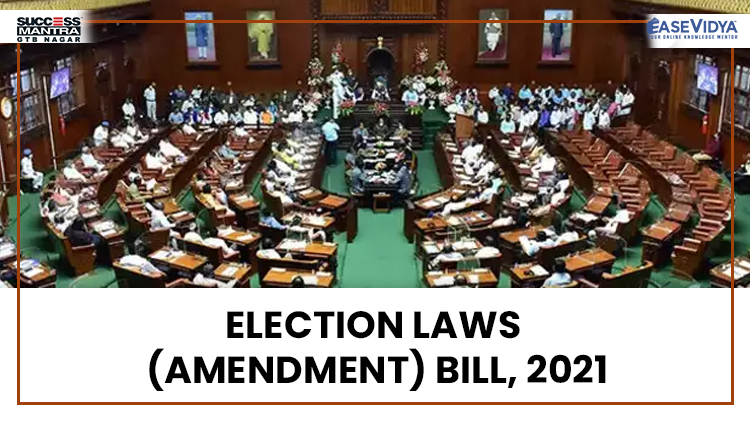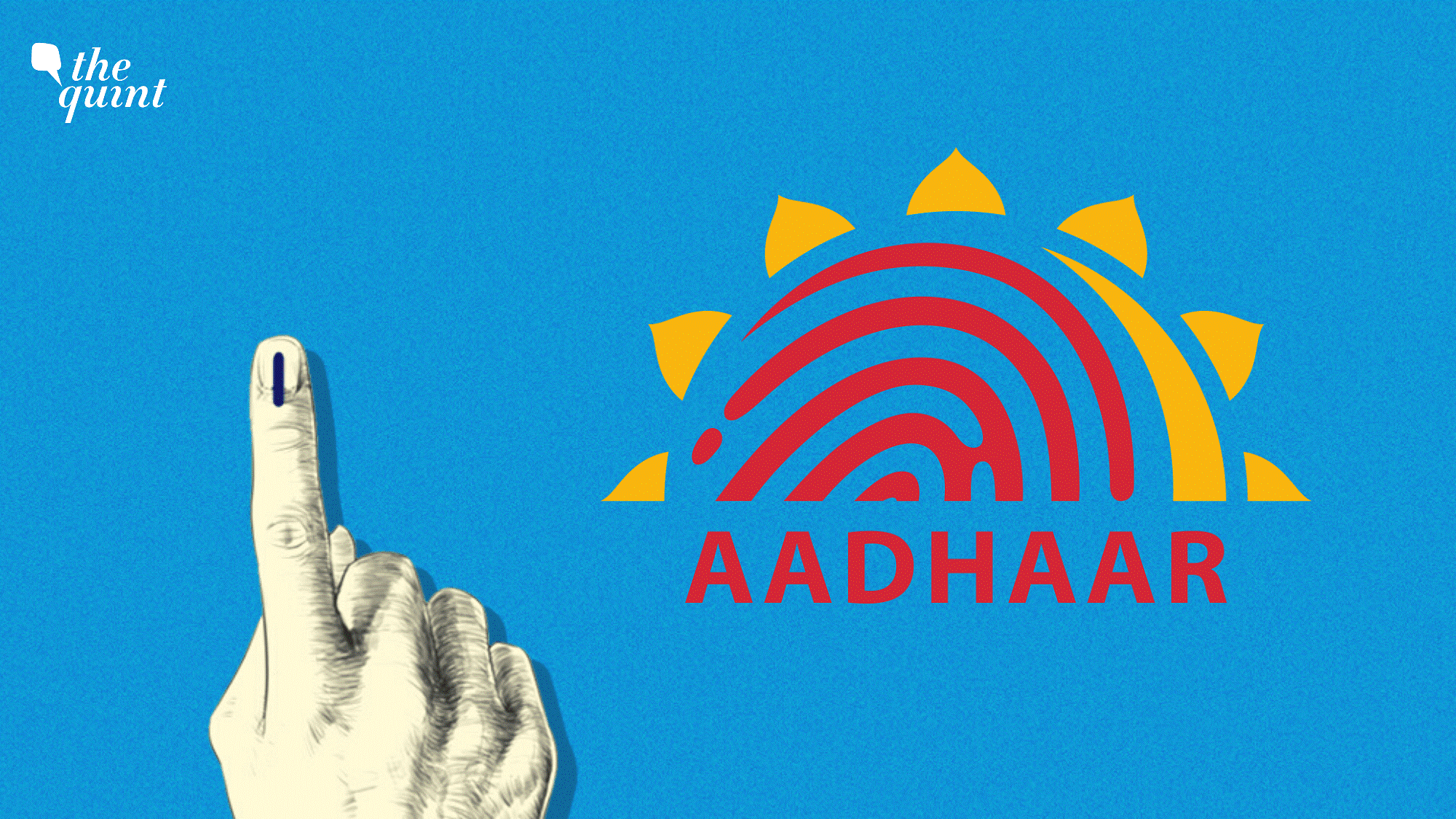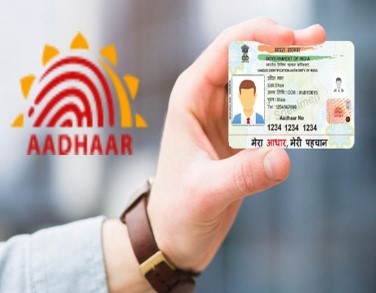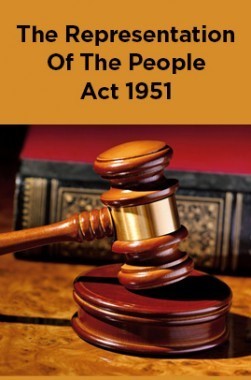
ELECTION LAWS AMENDMENT BILL 2021
ELECTION LAWS (AMENDMENT) BILL, 2021
The Election Laws (Amendment) Bill, 2021 was passed by the Parliament on December 21, 2021 after it was given a go ahead in the Rajya Sabha. The bill was passed in the Lok Sabha on December 20, 2021. The bill seeks to make amendments to the Representation of the People Act and allow electoral registration officers to seek the Aadhaar number of those who want to register as voters to establish their entity. The bill seeks to link electoral roll data and voter ID cards with the Aadhaar ecosystem. However, the Opposition members have raised several objections to the Bill.

The bill seeks to ensure de-duplication of electoral rolls and provide multiple qualifying dates to the voters. However, there are a lot of things wrong with this bill. The bill was passed in the Lok Sabha on the same day it was introduced. Not only does it undermine the fundamental premise of a Parliamentary democracy, but also deprives the elected representatives the opportunity to voice their concerns over an issue. Better Parliamentary scrutiny and ensuring the rights of elected representatives is essential for preserving a parliamentary democracy in its true means. An unwillingness to allow meaningful debate and invite wider consultation can undo even the progressive aspects of problematic legislation.
Current Affairs Notes By Success Mantra Coaching Institute GTB Nagar Delhi CLICK HERE
SALIENT FEATURES OF THE BILL
De-Duplication of Electoral Roll: It provides for amendment of section 23 of the Representation of People’s Act, 1950, enabling the linking of electoral roll data with the Aadhaar ecosystem. This aims to curb the menace of multiple enrolment of the same person in different places. This will help in stopping bogus voting and fraudulent votes. This linking is in consonance with 105th report of the Department Related Parliamentary Standing Committee on Personal, Public Grievances and Law and Justice.
Multiple Qualifying Dates: The citizens get voting rights when they turn 18. However, many are left out of the electoral rolls even after turning 18. This is because in the system, 1st January is the qualifying date. According to the bill, four qualifying dates will be declared for updating the voting rolls to include those who have turned 18 — the first day of the months of January, April, July and October.
Bringing Gender Neutrality: The language for registration of ‘wives of service voters’ will now be replaced by ‘spouse’. This will make the laws more “gender-neutral”. Service voters are those serving in the armed forces, armed police forces of a state serving outside it and government employees posted outside India.
ISSUES ASSOCIATED OR RELATED CONCERNS
Government gets the Final Say: It is the Central government who has the final say in prescribing the conditions under which an individual will be permitted to enter or remain on the electoral rolls, in case of her “inability” to furnish their Aadhaar. This means that the Central government will decide what reasons are considered acceptable for a voter to remain on the electoral roll.
Burden Shifting: Instead of the Government proactively ensuring registration on the electoral rolls to achieve universal adult franchise, the burden now shifts to individuals who may be unable/unwilling to link their Aadhaar to justify their retention on the rolls. Moreover, it will lead to the deletion from the voter rolls without any procedural safeguards since at the moment, the law does not provide for a right to a hearing before such deletion.
Privacy Concerns: Electoral data at present is held by the Election Commission of India (ECI) in its own database and is separate from other government databases. The proposed linkage Aadhaar and election database will make it available to the ECI and UIDAI. This could lead to infringement of the privacy of citizens. The legitimate voters will be disenfranchised merely upon their unwillingness/inability to submit Aadhaar details.
Identification of Beneficiary Voters: The amendment will result in political profiling. By linking electoral IDs with Aadhaar numbers, it is much easier for the Government to track any voter who has accessed welfare subsidies and benefits using their Aadhaar. This can be used by political parties to selectively target their messages to specific voters, using information that is not publicly available.

REPRESENTATION OF PEOPLE'S ACT
- The holding of free and fair elections is the sine-qua-non of democracy. To ensure the conduct of elections in free, fair and in an impartial manner, the constitution-makers incorporated Part XV (Articles.324-329) in the constitution and empowered Parliament to make laws to regulate the electoral process. The Election Commission of India (ECI) is the watchdog of free and fair elections in the country and Article 324 of the Constitution provides for its establishment. In this context, the Parliament has enacted the Representation of the People Act (RPA), 1950 and Representation of the People Act,1951. In this TTP, we will cover RPA, 1950 followed by the TTP on RPA, 1951 and other aspects related to both the acts.
- Universal suffrage: After independence, there was a need to hold general elections to elect a truly representative government on the basis of universal adult suffrage. Article 325 of the constitution ensures universal suffrage and provides that no person be ineligible for inclusion in, or to claim to be included in a special, electoral roll on grounds of religion, race, caste or sex.
- Universal Adult Suffrage: Universal adult suffrage is the right to vote of all adult citizens, regardless of wealth, income, gender, social status, race, or ethnicity, subject only to minor exceptions.
- Election Commission of India (ECI): The ECI as an independent constitutional authority was therefore brought into force from November 26th, 1949. The Acts: To provide a legal framework for the conduct of elections, Parliament passed the Representation of the People Act, 1950, Representation of the People Act, 1951 and Delimitation Commission Act of 2002.
- Delimitation: For the purpose of first general elections to the Lok Sabha and Vidhan Sabhas, the first delimitation order was issued by the President, in consultation with ECI and with the approval of Parliament in August 1951.

Representation of the People Act (RPA), 1950
- Key Provisions: Lays down procedures for delimitation of constituencies. Provides for the allocation of seats in the House of the People and in the Legislative Assemblies and Legislative Councils of States. Lays procedure for the preparation of electoral rolls and the manner of filling seats. Lays down the qualification of voters.
- Delimiting Constituencies: The President of India has been conferred the power to amend orders delimiting constituencies, only after consulting the ECI. In Lok Sabha, there is a reservation of seats for Scheduled Castes and Scheduled Tribes. The ECI has the power to determine the constituencies to be reserved for scheduled tribes in the states of Meghalaya, Mizoram, Nagaland and Tripura.
PRAVAHINI Current Affairs Notes By Success Mantra Coaching Institute GTB Nagar Delhi CLICK HERE
CONCLUSION
Reforms in Legislative Procedures: The Government must invite public opinion and allow deeper parliamentary scrutiny before implementing any new provisions. It is of utmost importance in a Parliamentary democracy like India that not just the ordinary citizens but also the elected representatives are not being deprived of their rights and opportunities. A productive debate raising the concerns as well as the significance of a proposed bill is essential to identify and eliminate the concerns a legislation may pose.
Alternative Ways for Eliminating De-Duplication: There are indeed issues of voters being registered in more than one constituency or the enrollment of non-citizens, but these can be addressed by other identification processes. In fact, the Aadhaar database may be irrelevant to verify voter identity because it is an identifier of residents and not citizens.
Need for Comprehensive Legislation: An error-free Electoral Roll is sine qua non of a free and fair election. The Government should come with a comprehensive bill so that proper discussion can take place in the Parliament. Also, the bill should specify the extent of data sharing between the two databases, the methods through which consent will be obtained, and whether consent to link the databases can be revoked.
Ensuring the Privacy of Citizens: Before pursuing the Aadhaar-voter ID integration, the government shall first go for enacting the Personal Data Protection (PDP) law.
The PDP regime must also apply to the government entities and require them to obtain the explicit consent of an individual before sharing their data across various government institutions.












0 Comment